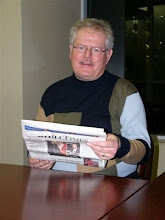Whether they realized it or not, Canadians witnessed an interesting case study last week of how governments can and do manage the media.
On the evening of Feb. 24, an official of the Conservatives was busy phoning around the Parliamentary Press Gallery to advise that Elections Canada had charged four key members of the Tory campaign team in the 2006 election, plus the party itself.
Those charged included Senators Doug Finley and Irving Gerstein, both key backroom players.
Why would someone tip off the media that their organization and colleagues are facing a whole raft of charges by a federal agency over expenses in the 2006 election?
It was all about getting in front of the story. As any media strategist will tell you, it is better that the media carry your version of the bad news rather than someone else’s.
And in this case, the tactic appears to have worked.
In the first batch of stories that appeared overnight Thursday and into Friday, the charges were described as administrative rather than criminal. Most outlets quoted the Conservative party as saying this. But some didn’t bother with attribution.
For the most part, the media tried to present their reporting as the result of working Parliament Hill sources, when in reality they were recipients of a gang leak. Or is that a mass spoon feeding?
Nor did anyone bother explaining there is really no such thing as an administrative charge.
Some of these charges carry a hefty fine of $25,000 and the possibility of one year in jail upon conviction.
The following day Elections Canada and the public prosecutor’s office released the actual charges and began setting the record straight. And the media dutifully reported what they said. They also reported the outraged reaction of the Opposition parties.
However, by that time the story was already growing stale as old news.
Since Parliament was off last week, the Tories had a huge advantage in getting its version of the facts planted in most people’s memories. By Monday, there was scant reference to the election charges in the media. Case closed.
In most people’s minds this is the latest development in a longstanding dispute between the Tories and Elections Canada. After all, the Federal Court had ruled in the Tories’ favour last year about the party’s financial methods in the 2006 election. The ruling is under appeal.
Most people likely believe Elections Canada is looking for payback. However, there are elements of this story that has been lost in the clamour.
The charges were not actually laid by Elections Canada. They were laid by the Public Prosecutor’s Office, which had to be convinced there was a reasonable chance of conviction. What prompted federal prosecutors to proceed now?
Also, these charges were laid on Wednesday, Feb. 23. Why no news release by Elections Canada or the Public Prosecutor Office? Authorities don’t usually leave the chore of announcing prosecutions up to those facing prosecution.
Let’s hope there are journalists enterprising enough to investigate those questions.
Nobody can blame a political party for trying to play its ace as best it can in the court of public opinion. But we can blame the media for allowing themselves to be played.




Labour held on in Wales, though the Conservatives managed to pick up a few new seats. In London, the Liberal Democrats failed to make the...Tell Chicos Survey
ReplyDeleteTake this Cub Foods Guest Satisfaction Survey online at CubListens , and get a chance to win the $100 Gift Card in a weekly drawing.cublistens
ReplyDeletetrabzon
ReplyDeleteedirne
van
bingöl
yalova
ZPD6K